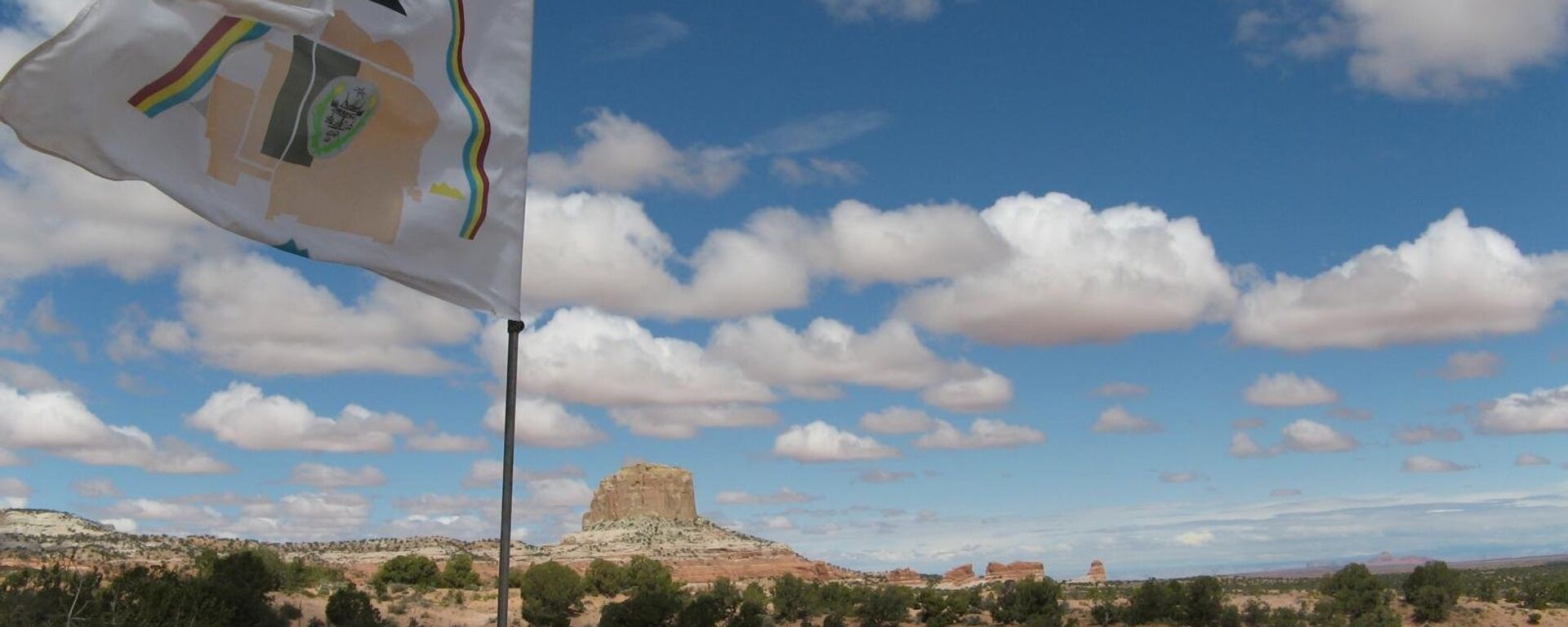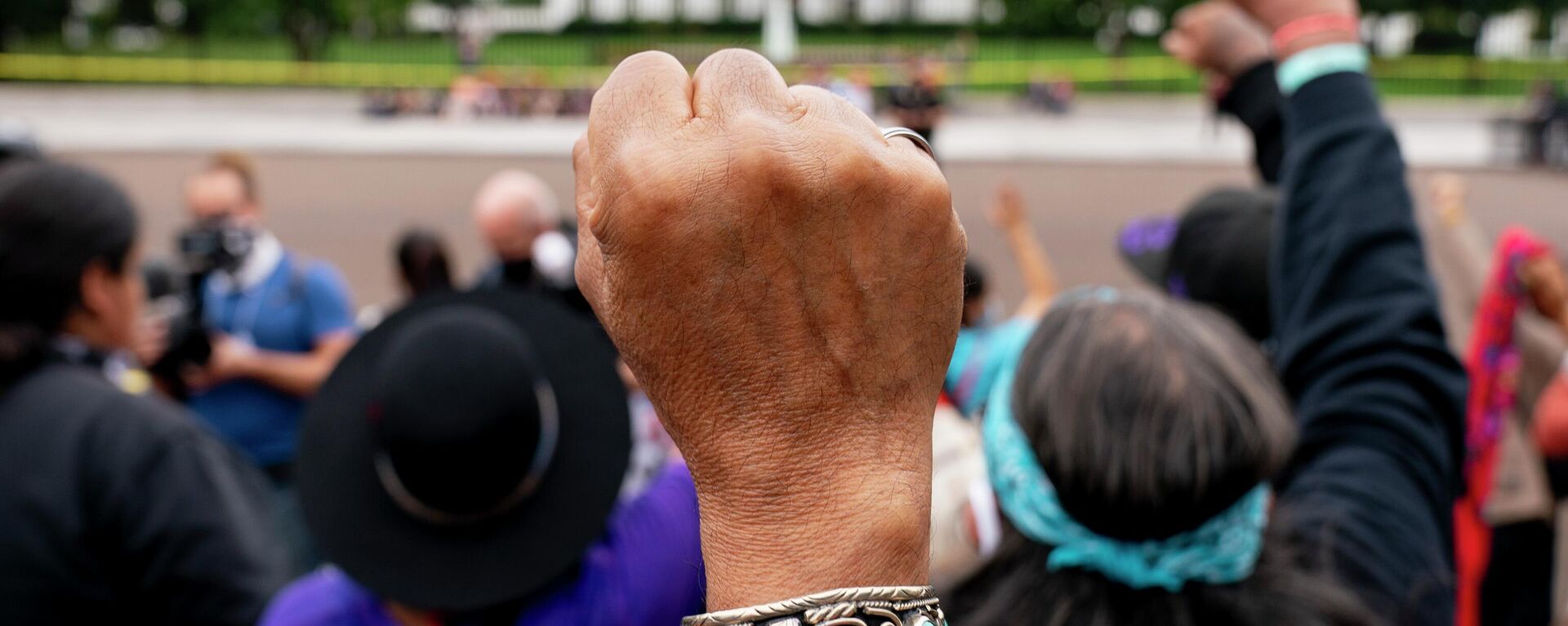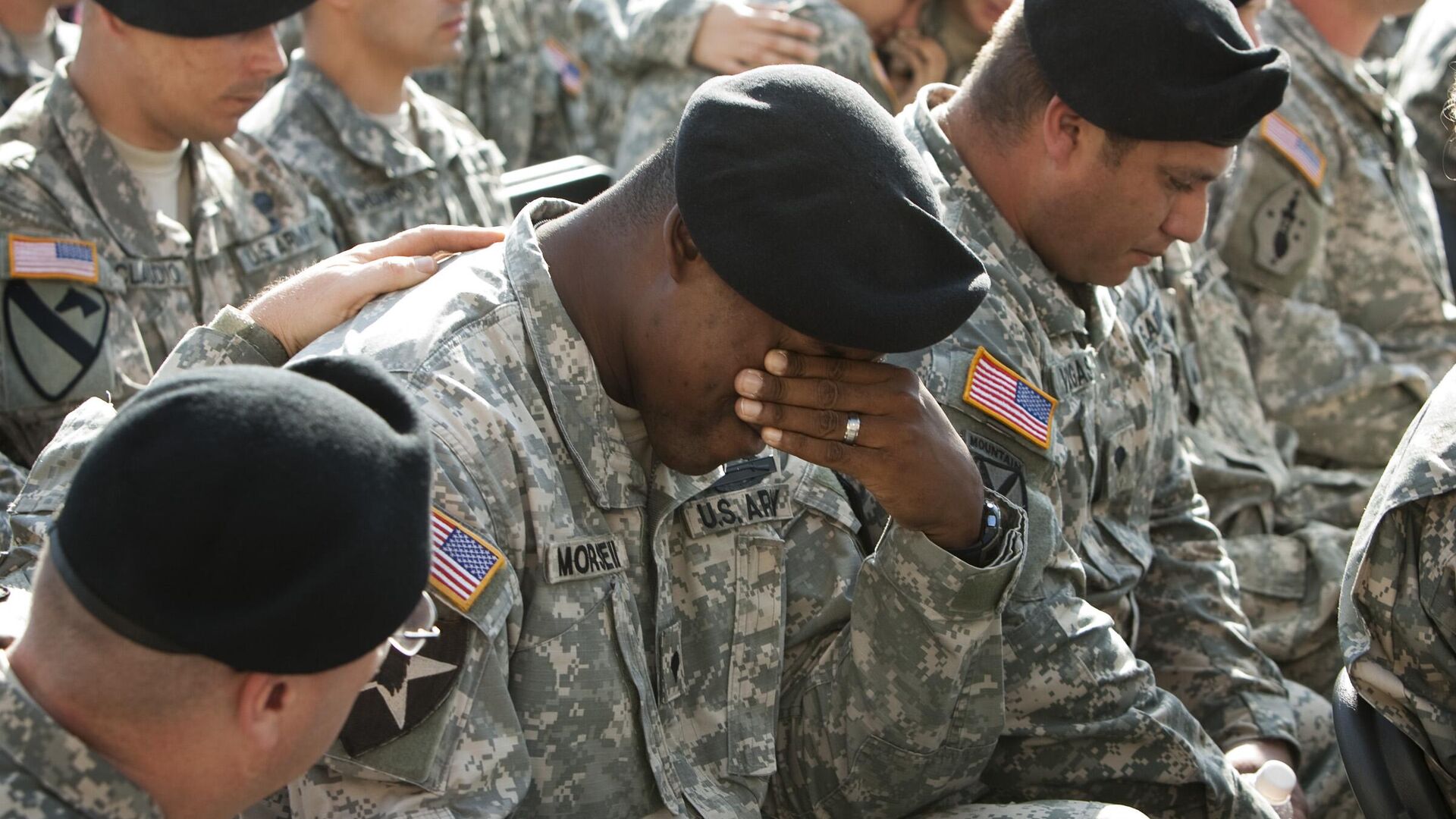https://sputnikglobe.com/20240922/long-overdue-us-military-apologizes-for-destruction-of-native-alaskan-villages-1120241277.html
‘Long Overdue’: US Military Apologizes for Destruction of Native Alaskan Villages
‘Long Overdue’: US Military Apologizes for Destruction of Native Alaskan Villages
Sputnik International
The US military has undertaken the process of issuing formal apologies to a Native Alaskan tribe more than a century after its shelling of two villages led to mass deaths.
2024-09-22T03:39+0000
2024-09-22T03:39+0000
2024-09-22T03:39+0000
native american
us
alaska
us navy
native americans
americans
analysis
genocide
ethnic cleansing
war crimes
https://cdn1.img.sputnikglobe.com/img/07e8/09/16/1120241588_0:195:2400:1545_1920x0_80_0_0_3fcceeed0ecc9158e2b0e001f4b25dad.jpg
The US military has undertaken the process of issuing formal apologies to a Native Alaskan tribe more than a century after its shelling of two villages led to mass deaths.A representative from the US Navy expressed remorse for the burning of the settlement of Kake Saturday afternoon, while a separate apology is planned next month on the 142nd anniversary of the destruction of the village of Angoon.“This has been 155 years in the making,” Jackson said.The “pain and suffering inflicted upon the Tlingit people warrants these long overdue apologies,” said Navy spokeswoman Julianne Leinenveber, referring to the tribe also commonly known at the Lingít. Navy officials conceded the “wrongful” nature of the attacks that “inflicted multigenerational trauma” as the tribe’s oral history has passed down the memory of the devastating events.Relations between the US and Native Americans were frequently tumultuous after the United States’ purchase Alaska from Russia in 1867. A treaty between Russia and indigenous peoples signed in the early 19th century maintained peace across the territory, but the US military maintained a policy condoning the use of lethal force to maintain American dominance.Misunderstandings owing to disparate languages, worldviews and legal systems often led the United States to respond through violent bombardments of native settlements.In 1869, a US military sentry killed two unarmed Lingít men in a canoe. After American commanders refused to offer restitution for the act in line with native customs, the Lingít killed two fur traders in response.The United States sent the USS Saginaw to shell the native village of Kake. US troops descended upon the village and razed it to the ground, burning housing, canoes, and food stores the natives depended upon to survive the harsh winter months. Multiple people would die in the weeks ahead of exposure and starvation.Years later, the native village of Angoon would face similar destruction after the US military refused to offer compensation for the death of a Lingít medicine man.The attacks form part of a grisly history of Western treatment of indigenous Americans dating back centuries. Earlier this year, the US Conference of Catholic Bishops issued an apology for the church’s role in establishing Indian boarding schools across the continent, which led to the deaths of hundreds of native children. In February, an Alaska lawmaker apologized for comments that appeared to downplay the prevalence of sexual assault of Native Alaskans; indigenous people are still significantly more likely to be victims of rape and other violent crimes.Indigenous activists continue to press for reparations and other forms of material compensation to make amends for centuries of genocide and displacement.
https://sputnikglobe.com/20231222/deeply-troubling-us-pledges-billions-of-dollars-for-foreign-nations---navajo-tribe--1115739583.html
https://sputnikglobe.com/20220922/equality-for-native-americans-means-diplomatic-relations-not-full-representation---activist-1101105293.html
alaska
Sputnik International
feedback@sputniknews.com
+74956456601
MIA „Rossiya Segodnya“
2024
John Miles
https://cdn1.img.sputnikglobe.com/img/07e8/01/19/1116388787_0:0:1316:1316_100x100_80_0_0_77e70d36afd983012b1c5d38ddb84156.jpg
John Miles
https://cdn1.img.sputnikglobe.com/img/07e8/01/19/1116388787_0:0:1316:1316_100x100_80_0_0_77e70d36afd983012b1c5d38ddb84156.jpg
News
en_EN
Sputnik International
feedback@sputniknews.com
+74956456601
MIA „Rossiya Segodnya“
Sputnik International
feedback@sputniknews.com
+74956456601
MIA „Rossiya Segodnya“
John Miles
https://cdn1.img.sputnikglobe.com/img/07e8/01/19/1116388787_0:0:1316:1316_100x100_80_0_0_77e70d36afd983012b1c5d38ddb84156.jpg
native alaskans, native americans, native tribes, genocide, ethnic cleansing, killings of civilians, killings of natives, american culture, american history, tribal life, american values, us history, us values, indian reservation, indian tribe, indian people, native people, human cannibalism, cannibals, wild people
native alaskans, native americans, native tribes, genocide, ethnic cleansing, killings of civilians, killings of natives, american culture, american history, tribal life, american values, us history, us values, indian reservation, indian tribe, indian people, native people, human cannibalism, cannibals, wild people
‘Long Overdue’: US Military Apologizes for Destruction of Native Alaskan Villages
Indigenous activists continue to press for reparations and other forms of material compensation to make amends for centuries of genocide and displacement.
The US military has undertaken the process of issuing formal
apologies to a Native Alaskan tribe more than a century after its shelling of two villages led to mass deaths.
A representative from the US Navy expressed remorse for the burning of the settlement of Kake Saturday afternoon, while a separate apology is planned next month on the 142nd anniversary of the destruction of the village of Angoon.
“It’s a long time coming,” noted Joel Jackson, the president of the Organized Village of Kake. “Hopefully, through this apology, we can start healing from the wrongs that were committed against us.”
“This has been 155 years in the making,” Jackson said. The “pain and suffering inflicted upon the Tlingit people warrants these long overdue apologies,” said Navy spokeswoman Julianne Leinenveber, referring to the tribe also commonly known at the Lingít. Navy officials conceded the “wrongful” nature of the attacks that “inflicted multigenerational trauma” as the tribe’s oral history has passed down the memory of the devastating events.
Relations between the US and Native Americans were frequently tumultuous after the United States’ purchase Alaska from Russia in 1867. A treaty between Russia and indigenous peoples signed in the early 19th century maintained
peace across the territory,
but the US military maintained a policy condoning the use of lethal force to maintain American dominance.Misunderstandings owing to disparate languages, worldviews and legal systems often led the United States to respond through violent bombardments of native settlements.

22 December 2023, 06:15 GMT
In 1869, a US military sentry killed two unarmed Lingít men in a canoe. After American commanders refused to offer restitution for the act in line with native customs, the Lingít killed two fur traders in response.
“As long as the native tribes… do not feel the force of the government and are not punished for flagrant outrages, so much the more dangerous do they become,” wrote Alaskan federal revenue collector William Morris, reflecting the hostile relations that prevailed at the time.
The United States sent the USS Saginaw to shell the native village of Kake. US troops descended upon the village and razed it to the ground, burning housing, canoes, and food stores the natives depended upon to survive the harsh winter months. Multiple people would die in the weeks ahead of exposure and starvation.
Years later, the native village of Angoon would face similar destruction after the US military refused to offer compensation for the death of a Lingít medicine man.
“They left us homeless on the beach,” recalled a 13-year-old native boy who survived the US attack, later offering testimony to an anthropologist.
The attacks form part of
a grisly history of Western treatment of indigenous Americans dating back centuries. Earlier this year, the US Conference of Catholic Bishops issued an
apology for the church’s role in establishing Indian boarding schools across the continent, which led to the
deaths of hundreds of native children. In February, an Alaska lawmaker apologized for comments that appeared to
downplay the prevalence of sexual assault of Native Alaskans; indigenous people are still significantly more likely to be victims of rape and other violent crimes.
“We weren’t at war with the US, they declared war on us,” said Jackson. “It was never anything other than the military coming and bombarding our village – there was no war. They need to make it right.”
Indigenous activists continue to press for reparations and other forms of material compensation to make amends for centuries of genocide and displacement.

22 September 2022, 20:29 GMT





